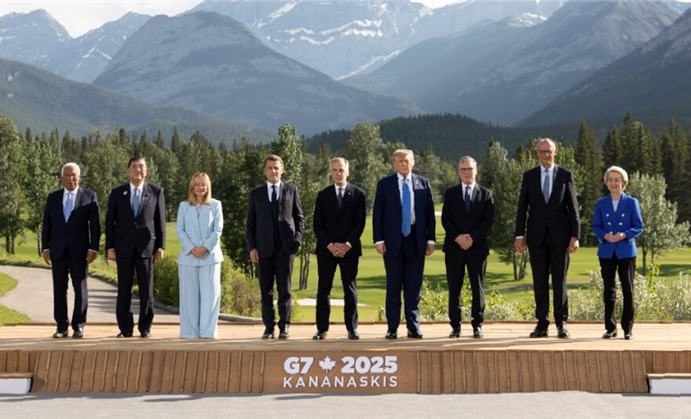President Lai Ching-te has publicly thanked the G7 leaders for their unified stance on maintaining peace in the Taiwan Strait and for addressing China’s escalating military activities in nearby waters. This comes after the G7 Summit’s Chair Summary explicitly cited China’s “destabilizing activities” and underscored the importance of stability across the Strait.
🇹🇼 Taiwan’s Response: Strong Diplomatic Support Welcomed
President Lai’s Statement
Lai took to X (formerly Twitter) to thank G7 leaders for showing solidarity, saying:
“Deeply appreciate the #G7 leaders’ support for peace & stability across the Taiwan Strait & their concerns over China’s destabilizing activities.”
Foreign Minister Lin Chia-lung’s Remarks
Lin echoed Lai’s sentiment, calling it a “growing international consensus” on safeguarding the Taiwan Strait and maintaining the status quo.
🌐 G7’s Position: More Than Symbolic Words
The G7 Chair Summary included two key points relevant to Taiwan:
- Call for Peace and Stability Across the Strait
- Criticism of China’s Industrial Policies and Coercive Economic Practices
This statement signals a more coordinated international approach to counter China’s influence in the Indo-Pacific and defend democratic values.
🚨 Why This G7 Statement Matters
Escalating Tensions
China has increased naval and air force exercises near Taiwan, raising fears of miscalculation or intentional escalation.
G7’s Geostrategic Messaging
The G7’s message is clear: unilateral attempts to change the status quo by force are unacceptable.
🇨🇳 China’s Expected Reaction
Based on previous responses, Beijing is likely to:
- Condemn the G7 statement as “interference in internal affairs”
- Reaffirm its “One China” stance
- Possibly ramp up military or diplomatic pressure on Taiwan
📈 Impact on Taiwan’s International Position
This G7 endorsement may:
- Strengthen Taiwan’s case for deeper security ties with allies
- Provide political cover for increased defense spending
- Increase deterrence value against Chinese aggression
❓FAQs
What is the G7’s official stance on Taiwan?
Support for peace and stability in the Taiwan Strait, opposition to any unilateral changes to the status quo.
Is this the first time the G7 mentioned Taiwan so explicitly?
No, but the language has become firmer and more coordinated in recent years, especially since 2021.
Does this mean military support for Taiwan?
Not directly, but it signals political and strategic alignment among key democracies.
Will this statement affect Taiwan’s foreign policy?
Yes. Taiwan may leverage this momentum to deepen ties with the G7 and allied countries.


